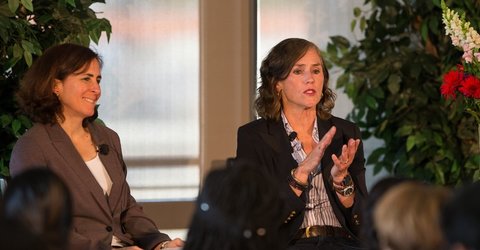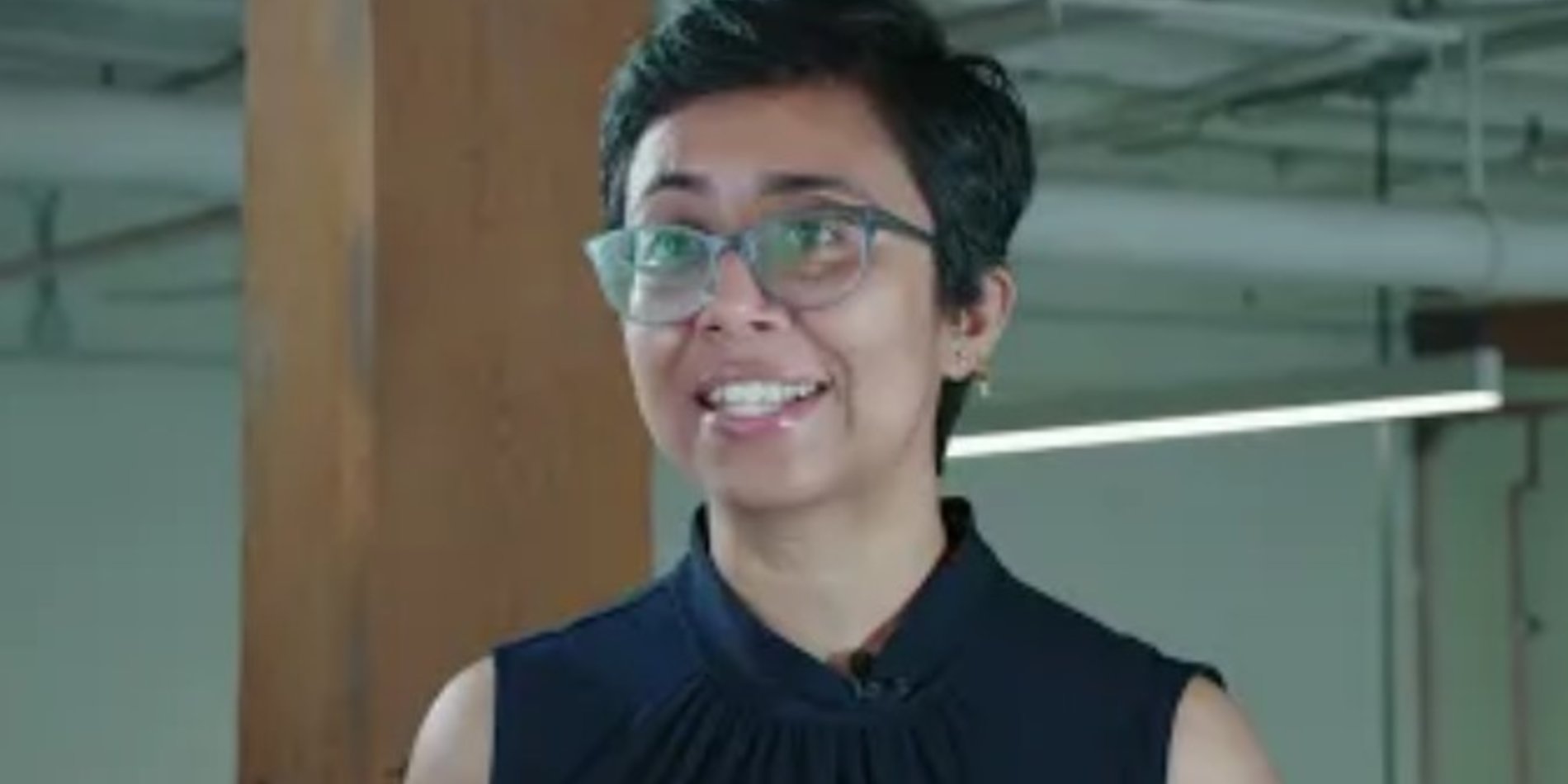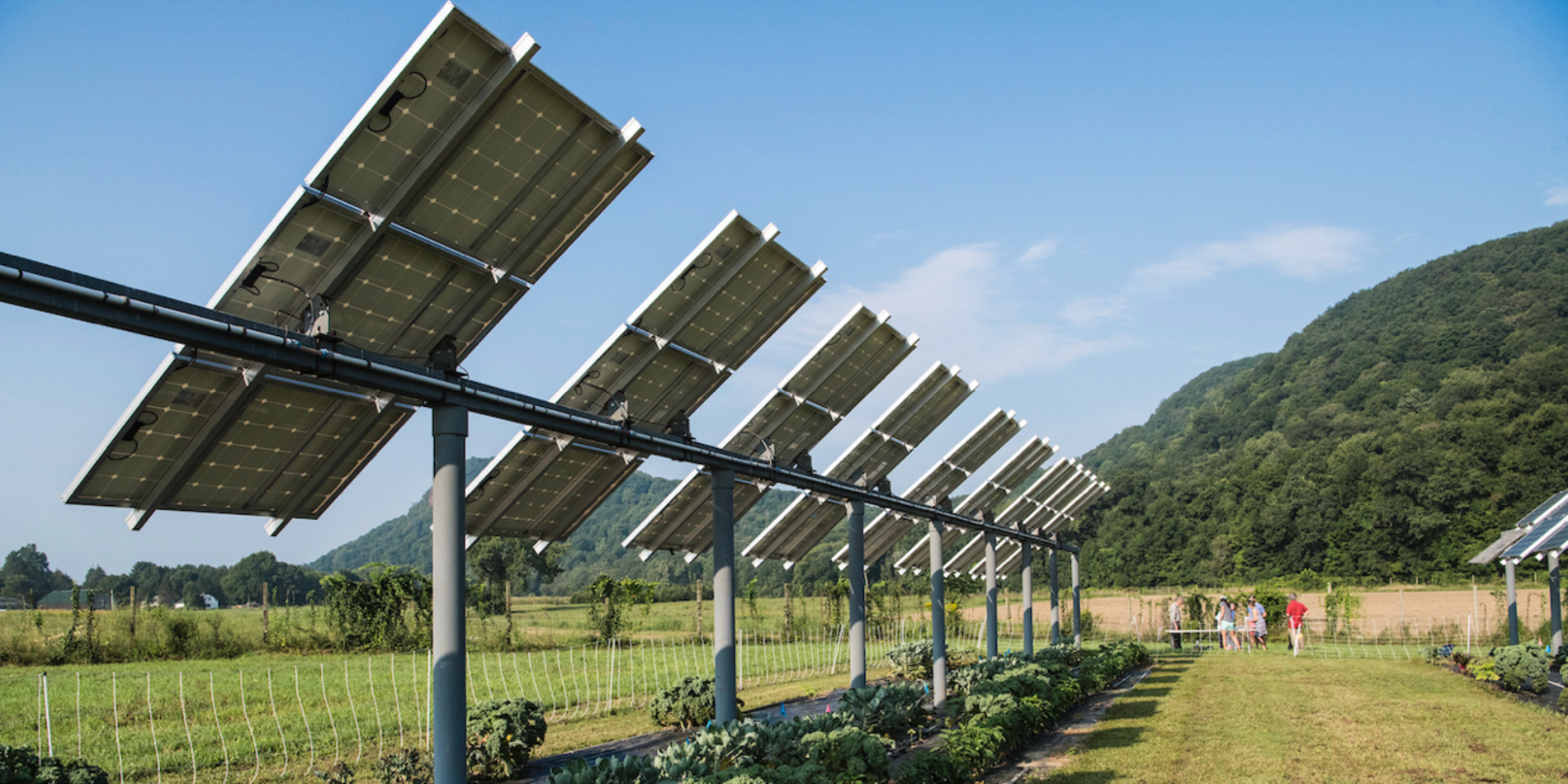Ventures in sustainability require extra perseverance and agility, entrepreneurial women say
Kat Taylor’s road to sustainable finance, food and energy started with the civil rights movement in the 1960s.
“When I was a tiny girl, I witnessed both the advent of TV and the rapid succession of civil rights funerals—John F. Kennedy, Bobby Kennedy, Martin Luther King, and Malcolm X,” Taylor said at the Women Entrepreneurs in Sustainability meeting at Stanford University. “That has motivated all my work, trying to find my unique contributions to civil rights for all.”
The meeting was organized by Stanford’s TomKat Center for Sustainable Energy, which was founded with a gift to the university by Taylor and her husband Tom Steyer. Along with Kat Taylor as the keynote speaker, a panel of three early-stage entrepreneurs took the stage to share the lessons that they have learned.
In sharing her origins, Taylor acknowledged her privilege and pointed to it as her impetus for advancing global systems that will protect Earth and its inhabitants.

To drive this change, Taylor and her husband have focused their efforts in three areas. The TomKat Center and NextGen Climate are part of their work on energy and climate change. They also started OneCalifornia Bank in Oakland, and the sustainable and humane TomKat Ranch. The community development bank—now Beneficial State Bank—pursues economic justice and environmental sustainability by lending to transformative sectors like affordable housing, sustainable fishing and agriculture, clean tech, and women- and minority-owned businesses. After 10 years, the bank has $860 million in assets. Any distributable profits go to its charitable foundation, which serves its customers’ communities.
“I don’t think capital markets determine what should happen. They just determine what does happen, often at the expense of people and planet,” she said. “We cannot replace the banking system. It’s too massive. But we can show depositors another model, and it’s working.”
Taylor’s tactic is to give diverse populations access to sustainable options so they can join and fortify the efforts needed to defend vulnerable communities and their rights.
Supporting the next generation
To propagate solutions that will address pressing global issues, the TomKat Center’s Innovation Transfer Program seeks to engage and support young entrepreneurs and new ideas. The program has backed dozens of ventures seeking to develop sustainable technologies invented at Stanford. One of those ventures, PastureMap, makes cattle ranching more sustainable and profitable with its mobile, cloud-based software. Alumna Christine Su, chief executive and founder, said at the Women Entrepreneurs in Sustainability meeting that in addition to the financial support provided by the TomKat Center to get PastureMap going, TomKat Ranch was the company’s first customer. Today, PastureMap serves more than 6,000 ranchers and farmers in 32 countries.
“We still have a long way to go,” said Su.
Ugwem Eneyo’s Solstice is looking to help the 60 million people in Nigeria who rely on expensive and sooty diesel fuel for home energy use to switch to solar power and batteries with the company’s hardware and software. Eneyo said that founding a startup and securing funding for women may be more difficult than it needs to be, noting that only about a dozen African American women have raised more than a $1 million in venture capital.
Eneyo, a PhD candidate, shared with aspiring entrepreneurs in the audience what she viewed as the best advice she had received when starting her venture:
“Don’t buy into some glamorous idea of the role of CEO. You must be ready to take rejection a lot, then pick yourself up and keep going.”
Challenges aside, Solstice will roll out a beta version of its hardware next month and three solar panel makers are very interested in working with the company, Eneyo said. Solstice recently won both the Berkeley Cleantech University Prize and the MIT Clean Energy Prize. It is using the combined $150,000 to launch its beta phase and hopes to begin selling the product next year.
Hedi Razavi co-founded Keewi, a software startup that reduces plug-level electricity use in commercial buildings. The alumna also had advice for new entrepreneurs. “Don’t insist on finding that perfect product or situation,” she insisted. “Just jump off the cliff and learn as you go.”
Razavi knows. Keewi, which like Solstice is relatively new, knew its technology worked well in universities and airports, but was surprised to find out that it performs particularly well in sports facilities. The company’s latest client is Levi’s Stadium, home of the San Francisco 49ers.
“With so many global issues to tackle, the speakers were clear about one thing,” Stacey Bent said after the meeting. “Pick a problem to solve and then listen to your customers. Solutions make an impact only if people are willing to use them.”
And, while female entrepreneurs have struggled historically to get venture capital, that has been changing. “The number of venture-backed companies with female founders has doubled over the past decade,” said Bent. “As with the sustainability problems these women are trying to fix, we’ve made progress, but still have a lot of work to do.”
Watch the videos from the Women Entrepreneurs in Sustainability Event




